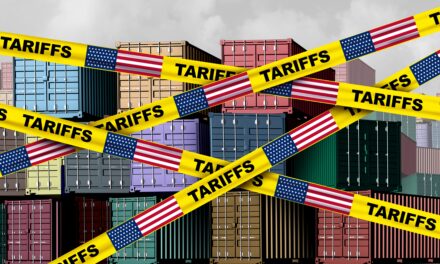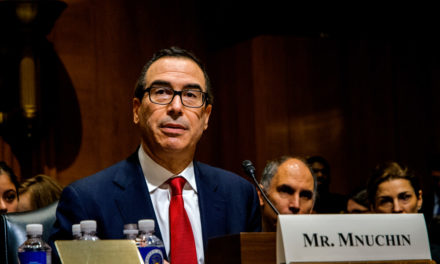Say what you will about the potential of Chinese tech giant Huawei Technologies Co. Ltd. to use its technology for the benefit of the Chinese government.
Whether you think it is bad for governments like the United States, the United Kingdom, New Zealand or any other nation that’s part of the Five Eyes intelligence alliance (Australia and Canada being the other two), there’s one thing Huawei is good for — American business.
Last year, Huawei spent nearly $11 billion with American companies for various products ranging from radio-frequency components to broadband chips.
Because of fears that Huawei would use its proprietary 5G technology, essential in countries and businesses upgrading to that data speed, the Trump administration banned exports from American companies to Huawei.
Of course, several of those companies found a way around the ban.
Now, two weeks after what appears to be a fruitful meeting with Chinese President Xi Jinping during the G20 summit in Japan, the Commerce Department will start to issue licences to companies, allowing them to sell their products to Huawei in instances “where there is no threat to national security,” according to Commerce Secretary Wilbur Ross.
While companies will be able to sell to Huawei, it will remain on a blacklist, of sorts, as a potential security threat.
The big winner in this easement is American business … specifically those wireless network providers.
I watched a video recently with a lot of interest. The subject matter was on how the ban has affected business in the United States and it pointed out something that tends to get overlooked.
The focus about this ban has been the impact it has on larger American companies like Qualcomm and Micron Technologies.
However, what we overlook is the impact it has on smaller wireless network providers looking to upgrade their potentially outdated networks as inexpensively as possible.
One thing that sets Huawei apart from a lot of equipment providers — especially in the United States — is their products are low in price and still decent in quality.
So for companies attempting to expand wireless networks to rural areas of the country or, as the video I watched pointed out, to developing countries that lack the infrastructure, Huawei needs to be a viable option for equipment purchases.
The hype is on 5G expansion but in reality, Huawei’s products work to help countries like Indonesia and other southeast Asian nations bolster their 4G capabilities.
It’s the same situation smaller network carriers face in the U.S. Attempting to expand and broaden networks in rural areas of the country isn’t cost-efficient for them so long as they are priced out of the equipment needed to do it.
All in all, I think partially lifting the Huawei ban will be the biggest benefit to those companies building out networks that we tend to take for granted.
Of course, big companies like Google, Intel and Micron are going to win as well.
Editor’s note: Was lifting the ban on Huawei a smart move in the grand scheme of things regarding the U.S.-China trade war? Share your thoughts below.





